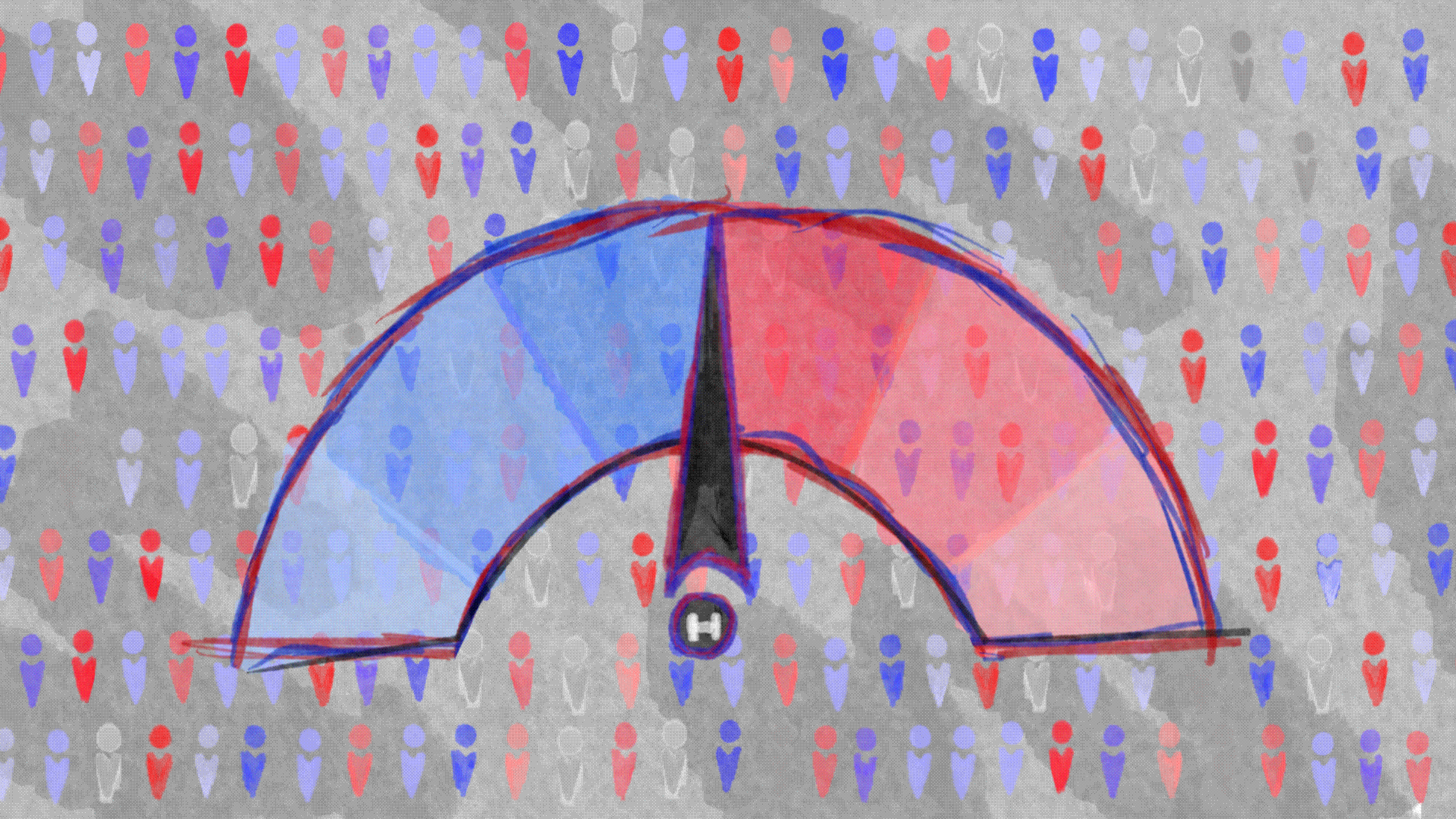The Harvard Youth Poll Overestimated Support for Harris. What Caused the Gap?
For the second consecutive presidential election cycle, the Harvard Institute of Politics Youth Poll overestimated support for the Democratic candidate among likely voters under 30 by a margin of more than 10 points.For the second consecutive presidential election cycle, the Harvard Institute of Politics Youth Poll overestimated support for the Democratic candidate among likely voters under 30 by a margin of more than 10 points.
The 2024 poll — released by the Harvard Public Opinion Project less than two weeks before election day — overstated Kamala Harris’ lead by 17 points. The 2020 survey of most likely young voters missed by 14 points.
Exit poll data found Harris carried voters under 30 by 11 points — a much narrower margin than the 28-point Democrat lead observed by the Harvard Youth Poll in October. Among registered voters, the poll found Harris ahead by 20 points.
The Harvard Youth Poll typically surveys 18-29 year olds biannually, but the group conducted an additional poll late in the election cycle to better understand the impact of Harris’ entrance in late July.
Not all youth polls gave Harris such a substantial edge in the final weeks of the campaign.
The GenForward Poll, the University of Chicago equivalent, found that Harris led Trump by only 12 points among young adults in late September. An ABC News/Ipsos poll conducted a week following the Harvard poll found that Harris held a 14-point lead among likely voters.
The GenForward and ABC News/Ipsos polls both had the Harvard Youth Poll’s 28-point lead outside of their respective margins for error.
“The question is, ‘How much of that is explained by polling error, and how much of that is explained by campaign effects in the last several weeks?” said E.J. Dionne Jr. ’73, a political commentator and professor at Georgetown University said.
“And if you’re the pollster, you want to really lay a lot on campaign effects,” he added.
IOP Polling Director John Della Volpe attributed the variance between the Harvard poll and the exit polls to late shifts in the race. He said early October was a “high water mark for Harris” in her support across the electorate.
“We need to respect that people’s views are elastic,” he said. “A lot of people, especially in ’24, were so incredibly stressed out by politics that they chose not to participate until the final weeks, the final days.”
“It’s not a discrepancy when people change their minds,” Della Volpe said.
While a late surge for Trump may have driven pollsters to overestimate the proportion of young voters who would favor Harris, polls of likely voters can also overlook the non-voters and low propensity voters, including young men, that Trump pulled into the electorate.
The accuracy of any youth poll is “very sensitive” to the accuracy of its turnout predictions, Dionne said.
“If a poll was slightly predicting an electorate that was slightly more female than what turned out, or if young men, young Trumpist men exceeded their predicted turnout levels, that could also make a difference in the surveys,” Dionne said.
Anil Cacodcar ’26, the chair of the Harvard Public Opinion Project, said Trump broadened the electorate in the final days of the campaign by targeting youth outside of mainstream media. Trump was a guest on Joe Rogan’s podcast, invited YouTube personalities the “Nelk Boys” on his private jet, and platformed his granddaughter Kai Trump.
“In the weeks after, Trump really did make a concerted effort to target young voters and earn their votes,” Cacodcar said.
Yet this electoral shift of young men towards Trump was clear early in the race, according to Matt Knee, a chief Republican pollster at WPA Intelligence.
“We started seeing more engagement and a strong Trump-ward movement in previous nonvoters six months before the election,” Knee said.
Those new voters could have slipped through the cracks due to challenges in youth polling, said Josh Pasek, the chair of the American Association for Public Opinion Research’s 2024 task-force on pre-election polling.
While pollsters typically use voter files to find individuals who are going to vote, young people may not have a voter file. Even if they have voted before, they might have moved addresses, and their voter file may not have followed them.
The Harvard Youth Poll uses the Ipsos Knowledge Panel — a high-quality, probability-based survey — to poll voters. Knee said online panels are especially vulnerable to expansions in the electorate because their database is “built up over the course of years.”
In this case, those new voters tended toward Trump.
“You also do see larger gaps and inaccuracies in situations where political engagement is an important predictor of people’s opinions,” Knee said.
Despite polling inconsistencies in two consecutive election cycles, IOP spokesperson Brigid O’Rourke wrote in a statement that the Harvard Public Opinion Project is dedicated to “equipping undergraduates with practical skills in public opinion research and storytelling.”
“We remain committed to conducting thousands of in-depth interviews each year, constantly refining and expanding our work to ensure young people are heard, understood, and included in the decisions that shape their future,” O’Rourke wrote.
The first HPOP poll of 2025 is expected to be released in April.
Correction: February 4, 2025
A previous version of this article misspelled the name of the YouTube channel the Nelk Boys.
—Staff writer Elise A. Spenner can be reached at elise.spenner@thecrimson.com. Follow her on X at @EliseSpenner.
—Staff writer Will P. Cottiss can be reached at will.cottiss@thecrimson.com. Follow him on X at @WillPCottiss.

